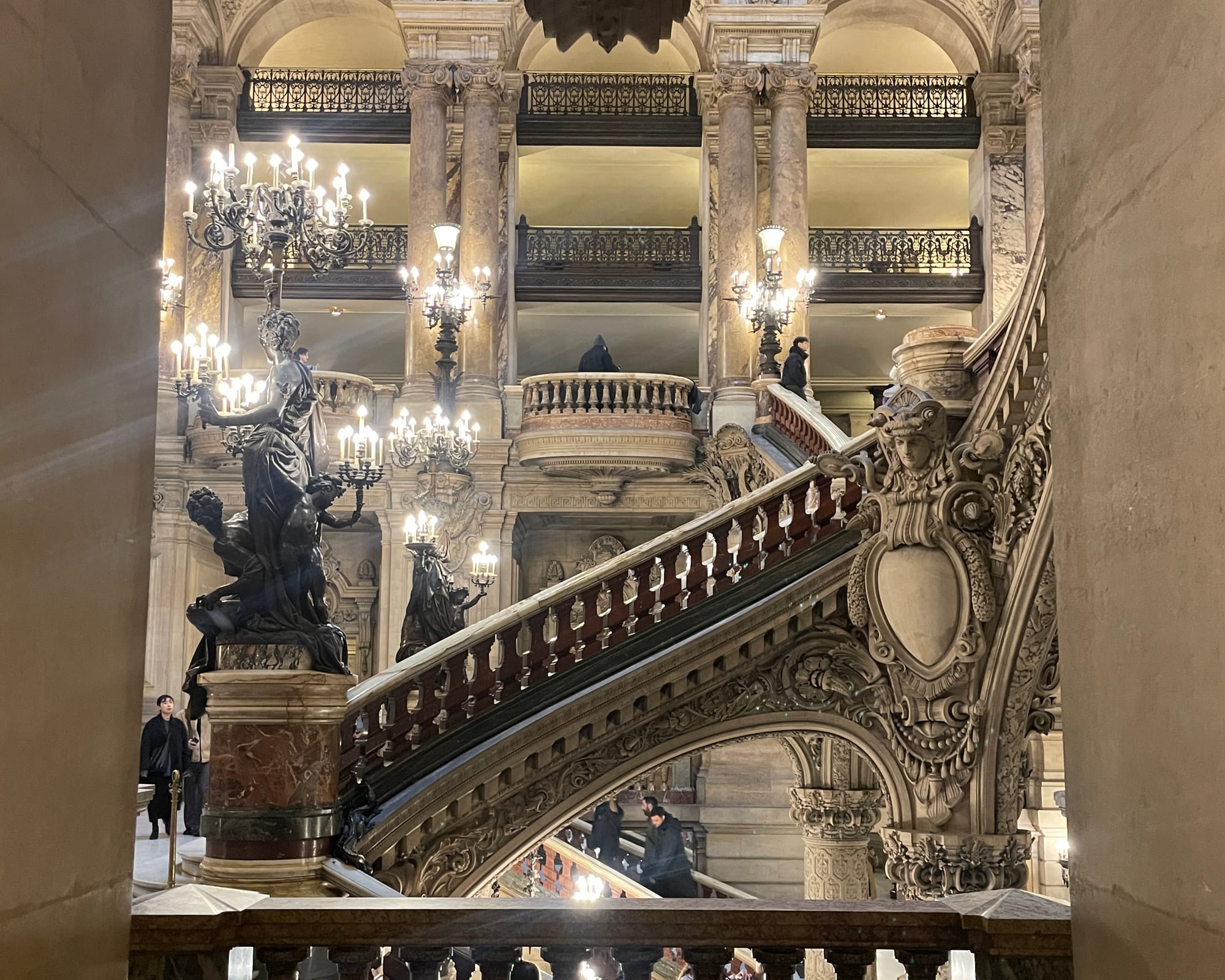A Conundrum of Operatic Taste👂🏻
I must admit I’m facing a conundrum of sorts at the moment with my ears. We often talk about taste when it comes to music, even though we don't refer to our physical tastebuds, but to the sort of music that each of us feels is 'music to our ears' (pun intended😜)...

I must admit I’m facing a conundrum of sorts at the moment with my ears. We often talk about taste when it comes to music, even though we don't refer to our physical tastebuds, but to the sort of music that each of us feels is 'music to our ears' (pun intended😜). As you well know, I have acquired a taste for Maria Callas' singing over the past two and a half years or so. Hearing her sing (or speak) is 'music to my ears' at this point, and I could even say that her voice makes me feel at home because I've listened to it so much.
That said, I recall that I didn't like her voice at all the first times I listened to it. I remember a specific moment when I was in the metro in Helsinki coming home from somewhere and I tried to listen to some of Callas' arias on Spotify. After some minutes of listening to her, I felt even a bit frustrated, because I just couldn't say that I enjoyed the sound of her voice. I knew what a beautiful and stylish woman she was, and I wanted to be also a fan of her singing, but I just couldn't get over the unusual sound of her voice at the time.
Nevertheless, time passed, and her voice grew on me. If I remember correctly, I fell in love with her singing after watching this video of her singing Bizet's Habanera in Hamburg in 1962 with her shorter hairstyle that looks like a sort of a helmet.😆 It's not one of her best vocal performances, and she forgets the lyrics to the aria twice during this performance, but still, the performance captures brilliantly her charisma and her acting chops. You can tell that she always focused on the storytelling part of singing an aria, not just executing beautiful notes. As a result, you feel that she means every word that she sings (at least every word that she didn't forget to sing🥸).
This is of course one of the aspects of her work that makes her so appreciated in the world of opera and among its fans, but at least in my case this appreciation for Callas' quality of singing and acting leads to a problem: now that I listen to other opera singers, I instantly compare them to Callas a bit more than I probably should.😀
For example, yesterday I decided to listen to some Renata Tebaldi out of interest. She was Callas’ contemporary and was considered a rival of Callas in the 50's, but they were actually in very good terms, even friends, during most of their lives. And in any case, Tebaldi performed very little of the same repertoire as Callas, so you can't really compare them in that sense. Tebaldi sang more 'verismo' style operas (Puccini, Giordano and some Verdi), whereas Callas preferred to sing 'bel canto' operas from the early 19th century (Bellini, Donizetti, Rossini, Ponchielli, Cherubini and some Verdi), even though she sang lots of 'verist' repertoire as well – and even Wagner!
Renata Tebaldi has of course her rightful place in the history of opera, and her voice is very beautiful, but I hate to say that I still find it a bit hard to listen to her singing, because I feel it lacks in the acting department compared to Callas. This can be a bit of a hot take, but I feel that her singing sounds more like a gymnastic exercise than a story told from the heart. The thing is: Callas made such interesting choices in her phrasing, because she wanted her singing to resemble the rhythm of her normal way of speaking as much as possible.
Even though we use our same vocal instrument for singing and for speaking, they are two very different things. When we sing, we usually prolong especially the vowels of the words, and that requires a sort of sustained exhalation. Despite this, it doesn't mean we can't sing in a way that still resembles our own natural way of speaking the words. Callas mentioned often herself, that she practiced especially the recitatives in operas through first speaking the lines as she would in normal life, and then sung it in a similar rhythm. In other words, she learned first the part exactly as it is written in the score, but then liberated herself from those constraints, and tried to find a compromise between the time values that the composer has indicated, and a natural flow of the lyrics as spoken lines. And this way of interpreting lines results often to a more touching and effortless-sounding performance.
Here are some examples of this that you can listen to as a comparison between Callas and Tebaldi:
- Callas' Sempre libera (from Verdi's La Traviata (1853))
- Tebaldi's Sempre libera (starting from timestamp 5:00)
- Callas' O don fatale (from Verdi's Don Carlo (1867))
- Tebaldi's O don fatale
- Callas' Suicidio (from Ponchielli's La Gioconda (1876))
- Tebaldi's Suicidio
- Callas' Sì, mi chiamano Mimì (from Puccini's La Bohème (1896))
- Tebaldi's Sì, mi chiamano Mimì
So as you can hear, they both sound great! But I would just take Callas' side when it comes to emotion-evoking choices in interpretation and nicely flowing lines of singing.🤓
